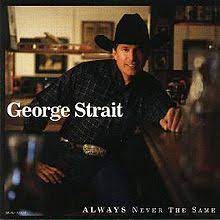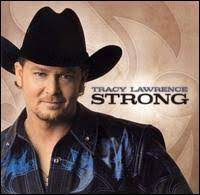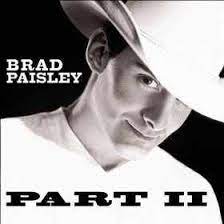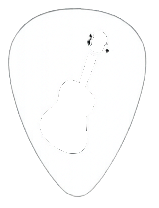Best Dwight Yoakam Songs to Learn on Guitar
If you love the blend of honky-tonk, rockabilly, and Bakersfield sound, Dwight Yoakam is a must-play artist for any acoustic guitarist.
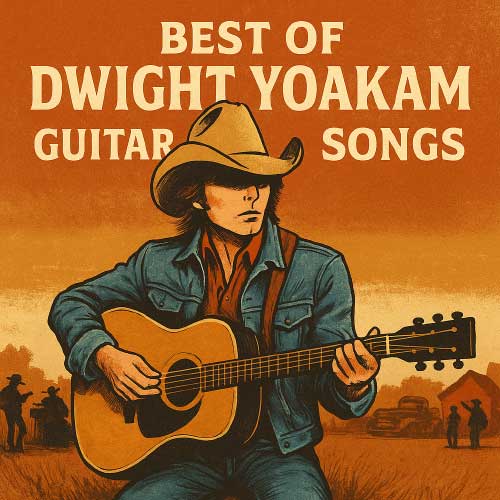
This page features some of his best-loved songs like “Guitars & Cadillacs,” “Fast As You,” and “I Sang Dixie.” Each lesson includes chord charts, strumming patterns, and demo videos to help you play these classics with confidence.
🎸 Overview Video -
“Watch This Preview of My
Best Dwight Yoakam Guitar Songs”
Soon.
Dwight Yoakam Guitar List
1000 Miles1000 Miles From Nowhere
Ain't That Lonely Yet
Buenas Noches From A Lonely Room
Close Up The Honky Tonks
Fast As You
Guitars & Cadillacs
Home For Sale
Home Of The Blues
I Got You
I Sang Dixie
It Only Hurts When I Cry
Johnson's Love
Love Caught Up To Me
Pocket Of A Clown
Population Me
Purple Rain
Sloop John B
Sorry You Asked
Stop The World And Let Me Off
The Back Of Your Hand
The Streets Of Bakersfield
Things Change
Turn It On Turn It Up Turn Me Loose
Two Doors Down
You're The One
1000 Miles - Learn To Play On Guitar
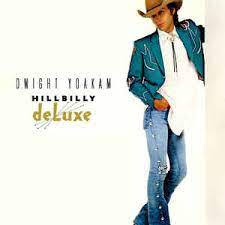
1000 Miles is a melancholic ballad by Dwight Yoakam from his 1987 album "Hillbilly Deluxe." It wasn't released as a single or have a music video.
The song expresses longing for a distant lover using just three chords, making it popular for acoustic performances. Yoakam performed it live on TV shows and in concerts.
Chords And Strumming
This one is played in standard tuning with a root down up bass down up or root down up bass up down up rhythm pattern with the chords E, A and B7. There is some lead in this one.
Guitar Lesson Details - (chords & lyrics sheet incl with lesson)
Chords & LyricsBack To Song List
1000 Miles From Nowhere - Learn To Play On Guitar
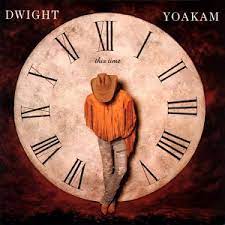
1000 Miles From Nowhere is a song by Dwight Yoakam from his 1993 album "This Time." It reached #2 on the US country charts and appeared in two movies.
The song tells of a man escaping his troubles in a distant small town. An official music video was made, featuring Yoakam driving through the Mojave Desert and performing in a bar, with Kelly Willis appearing.
The song has been covered by other artists.
Chords And Strumming
I play this with a capo 5th fret using the chords G, Em, C and D in standard tuning. I use a root down up root up down up rhythm pattern with some lead guitar playing.
Guitar Lesson Details - (chords & lyrics sheet incl with lesson)
Chords & LyricsBack To Song List
Ain't That Lonely Yet - Learn To Play On Guitar
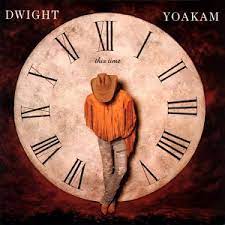
Ain't That Lonely Yet was the lead single from Dwight Yoakam's 1993 album "This Time." It reached #2 in the US, #1 in Canada, and won a Grammy for Best Male Vocal Performance. Co-written by Kostas and James House.
The song portrays a man trying to convince himself he's not lonely after a breakup. The official music video, directed by Carolyn Mayera and co-directed by Yoakam, was filmed in black and white and won the 1993 CMA Video of the Year.
Chords And Strumming
The chords here are G, G#, Am, F, C and E7 with a capo 5th fret in standard tuning. I'm using a root up down up root up down up and repeat rhythm pattern with some lead work.
Guitar Lesson Details - (chords & lyrics sheet incl with lesson)
Chords & LyricsBack To Song List
Buenas Noches From A Lonely Room - Learn To Play On Guitar
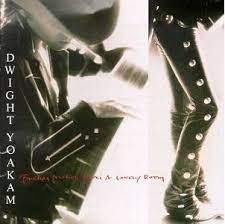
Buenas Noches From A Lonely Room (She Wore Red Dresses)" is a song from Dwight Yoakam's 1988 album of the same name. Written by Yoakam, it peaked at #46 on the Billboard Hot Country Songs chart.
The song depicts a man's doomed infatuation with a woman who wears red dresses. An official music video, directed by Les Rose, was filmed in black and white, featuring Yoakam performing in a dimly-lit room interspersed with scenes of a woman in red dresses.
Chords And Strumming
Played in standard tuning with a root down up root up down up or root down up down up root up down up rhythm pattern, you'll also need dto do some lead work. Use the chords E, A and B7.
Guitar Lesson Details - (chords & lyrics sheet incl with lesson)
Chords & LyricsBack To Song List
Close Up The Honky Tonks - Learn To Play On Guitar
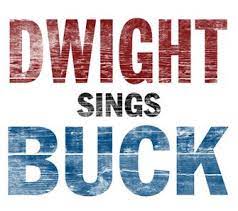
Close Up The Honky Tonks was written by Red Simpson, was recorded by Dwight Yoakam for his 2007 album "Dwight Sings Buck".
Not released as a single, the song has been covered by artists like Buck Owens and Merle Haggard. It tells of a heartbroken man asking a bartender to close the honky tonks to escape reminders of his lost love.
Yoakam's version captures the classic country sound, but no official music video was produced for his recording. There was no official music video produced for this track.
Chords And Strumming
A capo 3rd fret works here along with drop D tuning while playing the chords G, G7, C and D. Some picking required as you play the rhythm pattern down down down down up down up down up down up down up and repeat.
Guitar Lesson Details - (chords & lyrics sheet incl with lesson)
Chords & LyricsBack To Song List
Fast As You - Learn To Play On Guitar
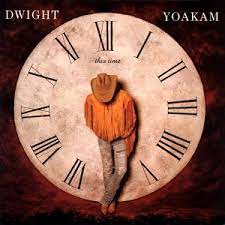
Fast As You is a song that Dwight Yoakam recorded for his album titled "This Time," which was released in 1993 and was written by Dwight Yoakam himself.
The track was released as a single by Yoakam in 1993. The song peaked at #2 on the Billboard Hot Country Songs chart and became one of Yoakam's most successful singles.
The story of "Fast As You" is about a man who is trying to convince his lover that he is the one for her. He boasts about his ability to keep up with her and says that he can love her "as fast as" she can run. The song's catchy guitar riff and upbeat tempo give it a rockabilly feel, and Yoakam's energetic vocals capture the confident and playful tone of the lyrics.
An official music video was produced for "Fast As You." The video was directed by Marcus Nispel and features Yoakam performing the song with his band in a warehouse while various images are projected onto the walls behind them. The video's edgy and stylized look reflects the song's rockabilly vibe and helped to further popularize the single.
Chords And Strumming
Soon.
Guitar Lesson Details - (chords & lyrics sheet incl with lesson)
Chords & LyricsBack To Song List
Guitars And Cadillacs - Learn To Play On Guitar
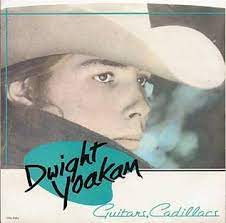
Guitars And Cadillacs is a Dwight Yoakam country song that he wrote himself. From the "Guitars Cadillacs Etc Etc" of 1986, he scored a #4 in the US and a #2 in Canada with this song. The wild guitar playing on this track is from album producer Pete Anderson who also played on other songs with Dwight.
"Guitars, Cadillacs" is about a man who has left behind his old life to pursue his dreams of playing music and driving fast cars. He sings about his love for guitars and Cadillac cars and how they represent the freedom and excitement of his new life. The song's twangy guitar riffs and upbeat tempo capture the energy and enthusiasm of Yoakam's character.
The song made an appearance in two Terminator films, Judgement Day and Dark Fate. American rockers The Protomen also covered this song.
Chords And Strumming
Only a G and D chord here in standard tuning and played with a capo 2nd fret. Some lead here with a walking bass down up down up and repeat rhythm pattern.
Guitar Lesson Details - (chords & lyrics sheet incl with lesson)
Chords & LyricsBack To Song List
Home For Sale - Learn To Play On Guitar
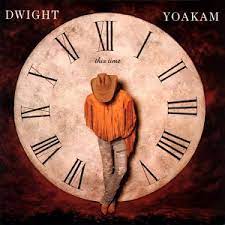
Home For Sale is another song written by Dwight Yoakam from his "This Time" album from 1993, which by the way, was his biggest selling album.
This song was not selected for a single release but a great song for the acoustic player.
There was no official music video produced for "Home For Sale," as it was not released as a single from the album. However, Yoakam did perform the song on various television programs and during live performances.
Chords And Strumming
This one played in standard tuning with a root up down up root up down up and repeat rhythm pattern. Some lead with the chords E, B7, E7, A, D, Gbm, C, F and Ab.
Guitar Lesson Details - (chords & lyrics sheet incl with lesson)
Chords & LyricsBack To Song List
Home Of The Blues - Learn To Play On Guitar
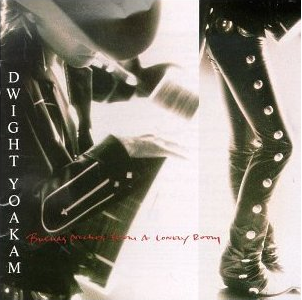
Home Of The Blues
is a song written by Johnny Cash and two others back in the 1950s which
Dwight covered for his 1988 album Buenas Noches From A Lonely Room.
This track was not released as a single.
Chords And Strumming
This one has some lead in standard tuning with a root down up down up down up and repeat rhythm pattern. Play the chords G, C, D, D/Gb, Em, E and an A7.
Guitar Lesson Details - (chords & lyrics sheet incl with lesson)
Chords & LyricsBack To Song List
I Got You - Learn To Play On Guitar
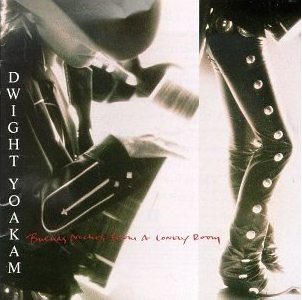
I Got You was the third single from this album of 1988 called "Buenas Noches From A Lonely Room" and hit the air waves in 1989, peaking at #5 in both the US and Canada.
Chords And Strumming
Soon.
Guitar Lesson Details - (chords & lyrics sheet incl with lesson)
Chords & LyricsBack To Song List
I Sang Dixie - Learn To Play On Guitar
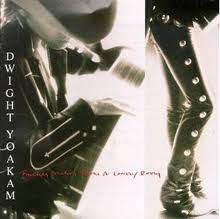
I Sang Dixie was the 2nd single from Dwight's "Buenas Noches From A Lonely Room" album released back in 1988 and was a #1 on the US and Canadian country charts. He had written the song several years earlier and recorded a demo back in 1981, but never got around to putting in on an album until 1988.
An official music video was produced for "I Sang Dixie". The video was directed by Dominic Sena and features Dwight Yoakam singing in a desert setting while a story involving the song's subject matter plays out.
Chords And Strumming
You can play this one in standard tuning with a root up down up and repeat rhythm pattern. No lead and with the chords E, A and B7.
Guitar Lesson Details - (chords & lyrics sheet incl with lesson)
Chords & LyricsBack To Song List
It Only Hurts - Learn To Play On Guitar
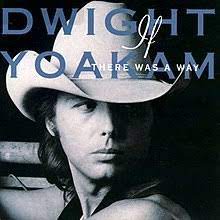
It Only Hurts ...hails from Dwight's 1990 album If There Was A Way.
Chords And Strumming
Soon.
Guitar Lesson Details - (chords & lyrics sheet incl with lesson)
Chords & LyricsBack To Song List
Johnson's Love - Learn To Play On Guitar
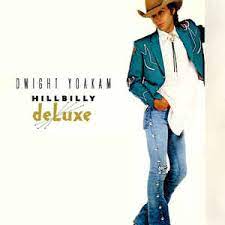
Johnson's Love is another great number written by Dwight Yoakam. Johnson's Love is a ballad and was one of three slow songs Dwight wrote early in his career. 7 of the 10 songs on the Hillbilly Deluxe album were written by Dwight and three were covers.
This particular song was not one of the four singles from the album.
Chords And Strumming
I play an arpeggio for the beginning and then root up down up root up down up and repeat rhythm pattern with some lead. I play this one in standard tuning with a G, C, G and a C/G.
Guitar Lesson Details - (chords & lyrics sheet incl with lesson)
Chords & LyricsBack To Song List
Love Caught Up To Me - Learn To Play On Guitar
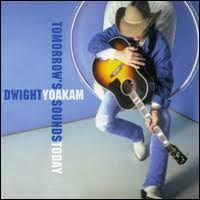
Love Caught Up To Me is the opening track on Dwight Yoakam’s eleventh studio album, Tomorrow’s Sounds Today, released on October 31, 2000. While the song was not released as a single and did not chart, the album itself was a success, reaching number seven on the Billboard Top Country Albums chart.
Written by Yoakam and produced by his longtime collaborator Pete Anderson, the track features a bright, up-tempo Bakersfield sound fueled by jangling guitars and soaring harmonies from Jim Lauderdale. A notable piece of trivia is that the album marked the final studio collaboration between Yoakam and Reprise Records before he moved to Warner Bros. Additionally, the project is famous for its "full circle" moment, featuring two duets with Yoakam’s idol, Buck Owens.
Chords And Strumming
Soon.
Guitar Lesson Details - (chords & lyrics sheet incl with lesson)
Chords & LyricsBack To Song List
Pocket Of A Clown - Learn To Play On Guitar
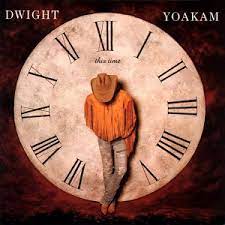
Pocket Of A Clown is from the 1994 album "This Time" and was released as a singl. There were five singles from the album and three went to #2, one went to #14 and this one peaked at #22 in the US and #4 in Canada.
The song was written by Dwight and a music video was also produced for the song.
Chords And Strumming
I play a capo 2nd fret here and in drop D tuning. Play a down up down up down up and repeat with walking bass rhythm pattern. Some lead here with the chords G, D, C and A.
Guitar Lesson Details - (chords & lyrics sheet incl with lesson)
Chords & LyricsBack To Song List
Population Me - Learn To Play On Guitar
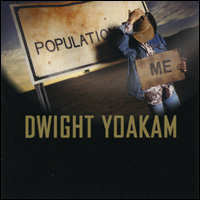
Population Me is a track from the 2003 album of the same name but there were only two singles released from the record, and this song didn't make the cut.
Chords And Strumming
Soon
Guitar Lesson Details - (chords & lyrics sheet incl with lesson)
Chords & LyricsBack To Song List
Purple Rain - Learn To Play On Guitar
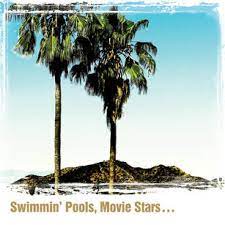
Purple Rain of course is a song initially recorded by Price back in 1984 and the song peaked at #2 on the charts in the US.
Dwight Yoakam put this track on his 2017 album "Swimmin' Pools, Movie Stars" but he performed the song bluegrass style.
Below are the Dwight Yoakam Purple Rain chords needed for this one.
Chords And Strumming
I play a capo 3rd fret in standard tuning and some lead required. Play a root down up root up down up and repeat rhythm pattern with the chords G, D, Em, C and a D7.
Guitar Lesson Details - (chords & lyrics sheet incl with lesson)
Chords & LyricsBack To Song List
Sloop John B - Learn To Play On Guitar

Sloop John B ... Dwight did a cover of this Beach Boys classic back in 2012 at The Live Room at EastWest Studios in Holly California.
I don't believe he ever recorded the song for an album or single.
Chords And Strumming
The chords here are G, D, D7, C, G6, Am with a root down up root up down up rhythm pattern. A small picking break is in the middle of the song following the melody line and played in standard tuning.
Guitar Lesson Details - (chords & lyrics sheet incl with lesson)
Chords & LyricsBack To Song List
Sorry You Asked - Learn To Play On Guitar
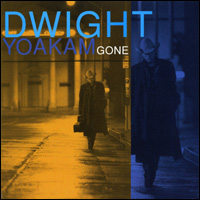
Sorry You Asked was a single from the 1995 album entitled "Gone". It managed to climb to #59 in the US and #73 in Canada.
Chords And Strumming
In this one I play a drop D tuning and a capo 1st fret is the original key. Play a root down up bass up down up and repeat rhythm pattern. Some lead with the chords D, G, A and C.
Guitar Lesson Details - (chords & lyrics sheet incl with lesson)
Chords & LyricsBack To Song List
Stop The World And Let Me Off - Learn To Play On Guitar
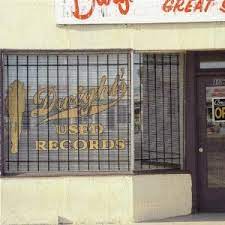
Stop The World And Let Me Off was played by Dwight in concert as a tribute to Waylon Jennings who had success with this song, but Waylon wasn't the first to record this song. In fact it was by Carl Belew who wrote and recorded it back in 1957. And then later that year Patsy Cline did a version and had success with the song.
Waylon did his version in 1965.
Dwight's version can be found on the compilation album "Dwight's Used Records" from 2004.
Chords And Strumming
Play this one in standard tuning with a root down up down up down up and repeat rhythm pattern and some lead required with the chords D, A and G.
Guitar Lesson Details - (chords & lyrics sheet incl with lesson)
Chords & Lyrics
Back To Song List
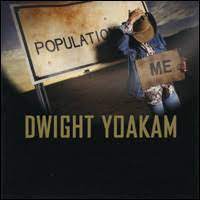
The Back Of Your Hand was one of two singles released in 2003 but neither song cracked the top 40 country singles chart. When an artist signs with a label, those labels have influence on getting your songs on the radio. The larger the label, the more influence.
Dwight changed labels from Reprise to Warner Bros and for this album to a much weaker label called Audium out of NYC. They never had the clout to get much airplay for this album called "Population Me".
It was also the last album with guitarist and producer Pete Anderson after a 20 year friendship which ended up in a court battle.
Chords And Strumming
I play a standard tuning here with some single note arpeggio playing with this song and use a root down up down up down up and repeat rhythm pattern. No lead but a G, C, D, Em and a D/Gb for chords required.
Guitar Lesson Details - (chords & lyrics sheet incl with lesson)
Chords & LyricsBack To Song List
The Streets Of Bakersfield - Learn To Play On Guitar
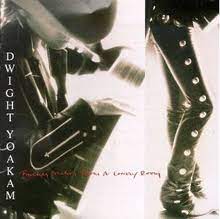
The Streets Of Bakersfield was Dwight Yoakam's first #1 in the US but his first #1 was Honky Tonk Man in Canada two years earlier.
From his "Buenas Noches From A Lonely Room" album of 1988, The Streets Of Bakersfield was a duet with his mentor Buck Owens. Homer Joy wrote the song years earlier and it was recorded by Buck back in 1972, but he had little commercial success at that time.
This duet version was the first time Buck Owens had seen a #1 in 16 years.
Chords And Strumming
I play a capo 2nd fret in standard tuning with a root down root up down up and repeat rhythm pattern. Some lead required with the chords G, C and D.
Guitar Lesson Details - (chords & lyrics sheet incl with lesson)
Chords & LyricsBack To Song List
Things Change - Learn To Play On Guitar
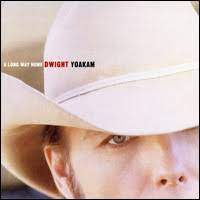
Things Change hails from the album "A Long Way Home" which was the 9th album from Dwight Yoakam and hit the airwaves in 1998. This song was one of two singles from that album and reached #17 on the US country charts.
This song was also written by Dwight Yoakam.
Chords And Strumming
The chords here are A, E, D and Gbm with some lead. Play a root down up down up down down repeat rhythm pattern in standard tuning.
Guitar Lesson Details - (chords & lyrics sheet incl with lesson)
Chords & LyricsBack To Song List
Turn It Up Turn Me On Turn Me Loose - Learn To Play On Guitar
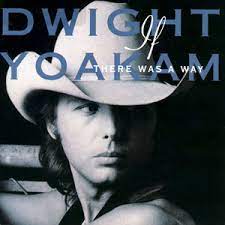
Turn It Up Turn It On Turn Me Loose is one of five singles that came off of this one album in 1990 with Dwight's "If There Was A Way" album. Two songs were in the top 10 and the other three were in the top 20, including this one, which peaked at #11 in the US and #5 in Canada.
The song was co-written by Kostas and Wayland Patton.
Chords And Strumming
Played with a root down up bass up down up and repeat rhythm pattern in standard tuning with the chords E, B7, E7 and an A.
Guitar Lesson Details - (chords & lyrics sheet incl with lesson)
Chords & LyricsBack To Song List
Two Doors Down - Learn To Play On Guitar
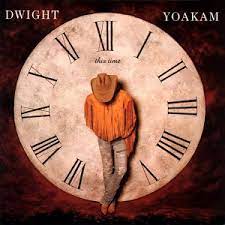
Two Doors Down can be found on the 1993 album "This Time".
Dwight co-wrote this song with Nashville writer Kostas.
Of the 5 singles released from this album, this song was not one of them.
Chords And Strumming
This one played in standard tuning with no lead with the chords G, D, C and A7. Play this with a root up down up down up and repeat rhythm pattern.
Guitar Lesson Details - (chords & lyrics sheet incl with lesson)
Chords & Lyrics
Back To Song List
You're The One - Learn To Play On Guitar
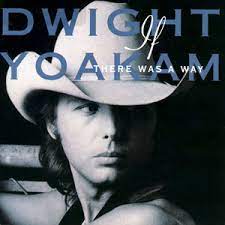
You're The One was a 1991 single which was was released from the album "If There Was A Way" and peaked at #5 in the US and #4 in Canada. There was also a music video created for the song.
This is another song that Yoakam had written 9 years earlier and it sat and gathered dust until it found it's place on this album.
Chords And Strumming
Play a root up down up root up down up and repeat rhythm pattern with some lead and in standard tuning. Play the chords G, C, D, Am, D/Gb, D7, Adim, Em, E/Eb, E/D, A7 and Am7.
Guitar Lesson Details - (chords & lyrics sheet incl with lesson)
Chords & Lyrics
Back To Song List
Whether you're just discovering Dwight Yoakam or revisiting his hits from the '80s and '90s, these lessons offer a fun way to build your country guitar skills. Be sure to check out our other artist pages for more country legends and acoustic favorites.
If you liked this best Dwight Yoakam guitar songs page you might also like ... (click images)
Dwight Yoakam Biography
Home Page
Very Easy Country Guitar Songs
